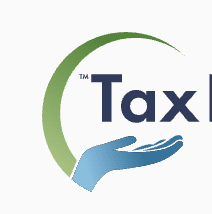As tax documents accumulate, the stress builds, leaving many uncertain where to turn for guidance. The decision between hiring a Certified Public Accountant (CPA), a tax attorney, or both ultimately depends on your specific circumstances.
These financial professionals offer distinct expertise; depending on your tax situation, one might better address your needs than the other. This guide examines the qualifications, services, and costs of both to help you determine which expert is right for your tax concerns.
» Feeling the tax pinch? Check out our best tax relief companies to get personalized advice.
Key Insights
- CPAs are ideal for tax planning, preparation, and filing. They also routinely help with financial statements and accounting services for businesses.
- Tax attorneys specialize in tax-related legal matters, like audits, tax fraud, and court representation.
- Some situations may require both professionals.
- CPAs and tax attorneys can advise on business tax optimization and estate planning.

Understanding the Qualifications: CPA vs Tax Attorney
Certified Public Accountant (CPA)
Certified Public Accountants (CPAs) are financial professionals with accounting degrees and have successfully passed the CPA examination. They maintain state-specific licenses and complete regular continuing education to stay current on tax laws.
CPAs specialize in tax preparation, financial reporting, and comprehensive accounting services for individuals and businesses.
Tax Attorney
Tax attorneys are legal professionals who have completed law school and passed the bar examination in their state of practice. They pursue ongoing legal education to remain well-versed in tax codes and regulations.
Their expertise centers on legal aspects of taxation, including representation during IRS disputes, assistance with tax litigation, and guidance through complex tax-related legal matters.
When a CPA Is Typically Your Best Choice
You need a CPA if you're looking for help with financial planning or routine tax preparation, including some audits. CPAs are best for:
- Tax preparation and filing: CPAs prepare and file tax returns for individuals and businesses, ensuring that the returns comply with up-to-date federal and state regulations.
- Accounting services and financial statements: Business owners use CPAs to keep their finances on track with financial statement preparation and regular accounting services.
- Tax planning: CPAs strategize with you to maximize deductions and credits to legally reduce your overall tax liability.
- Business structure advice: CPAs, using their in-depth knowledge of taxation, can advise you on the most efficient tax structure for your business.
- Simple audits and routine IRS correspondence: While some attempt to settle with the IRS by themselves for minor issues, CPAs can help resolve problems and streamline communication for simple audits or IRS correspondence.
When You Should Hire a Tax Attorney
If your tax situation becomes a legal situation, a tax attorney can help you with the following:
- IRS audits with legal implications: Tax audits that could result in criminal charges or legal penalties require a tax attorney.
- Tax fraud investigations: Tax attorneys are the professionals to call if the IRS believes you knowingly lied about your taxes.
- Tax court representation: Tax attorneys are licensed to practice law and represent you and your interests in court.
- Complex estate planning and trusts: Tax attorneys use their knowledge of each state's laws to create wills and trusts and handle complex estate planning.
- Business transactions with legal implications: Tax attorneys help businesses with contract drafting and execution, trademark registrations, regulatory and compliance matters, and asset transfers.
- Collection actions: If the IRS is recouping unpaid taxes through liens, levies, or garnishments, a tax attorney can help.
Overlapping Services: When Either Could Help
CPAs and tax attorneys have particular expertise, but there are some instances where either could help:
- General tax advice and planning: While CPAs prepare and file taxes, either professional can help you strategize to reduce your taxable liability in the future.
- Representation with IRS: CPAs can technically represent you in simple IRS tax errors, but you should consult a tax attorney for anything complex or with criminal implications.
- Business consultation: Both CPAs and tax attorneys can advise businesses on the tax liabilities of their structure and decisions.
- Estate planning: Tax attorneys must implement legal documentation like wills or trusts, but both professionals can advise you on estate planning matters.
The Cost Factor: What to Expect
Generally, tax attorneys command higher fees than CPAs. This price difference reflects their specialized legal expertise, which becomes worthwhile when facing complex IRS issues or planning intricate estates. However, if your situation could be handled by either professional, a CPA typically offers a more cost-effective solution.
CPA Costs
CPAs often use a hybrid pricing structure. They may charge flat fees for standard services like tax preparation or regular business accounting, with rates based on complexity. They typically bill hourly for specialized work at rates ranging from $150-$400, depending on geographic location, expertise level, and service type.
Tax Attorney Costs
Tax attorneys predominantly bill hourly, with standard rates between $200 and $400. For high-profile specialists or representation in court proceedings, rates can escalate to $1,000+ per hour. These premium fees reflect the specialized legal protection and advocacy they provide in high-stakes tax situations.
How to Choose the Right Tax Professional
Choosing the right tax professional doesn't have to be daunting; you just need to follow a few steps:
- Assess your needs: Do you need help with tax preparation or business accounting? Call a CPA. Do you need legal assistance or IRS correspondence? A tax attorney is your best bet.
- Check credentials: CPAs and tax attorneys are both licensed through the state. Check to see if they have any disciplinary history and if their licenses are current.
- Get the whole picture: Consider an initial consultation before committing to a tax professional. Ask about their experiences, fees, and your point of contact for questions.
- Build a long-term relationship: Establishing a long-term relationship with your tax professional gives you continuity and helps them better understand your financial situation, hopefully leading to reduced tax liabilities in the future.
Bottom Line
CPAs are best for tax preparation and filing, business accounting, and some estate planning. Tax attorneys specialize in more complex tax issues with legal implications, such as audits, possible criminal charges, and tax court representation.
Sometimes, both professionals can solve your problem equally. For complex situations, you might need both a CPA and tax attorney working together on your behalf. Choose the right expert—or team of experts—based on your tax situation to get the best results while staying on the right side of tax law.
Meagan Drew is a personal finance and loans expert at BestMoney.com. She has written for publications such as Investopedia, Apple News+, and SimpleMoneylyfe.com. With seven years of experience as a financial advisor, Meagan specializes in making complex topics like budgeting and investing accessible and engaging for everyday consumers.



